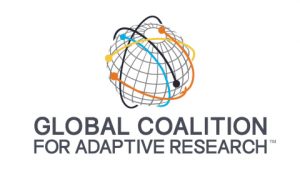GCAR, Eisai and UPMC, on Behalf of REMAP-CAP Investigator Network, Announce Eritoran’s Inclusion in REMAP-COVID, An Adaptive Clinical Trial to Test Interventions for Patients With Moderate and Severe COVID Infection
Global Coalition for Adaptive Research (LOS ANGELES, CA) and Eisai Co., Ltd. The Global Coalition for Adaptive Research (GCAR), in collaboration with UPMC (University of Pittsburgh Medical Center), and Eisai Co., Ltd. announce today that Eisai Co., Ltd. will join REMAP-COVID, a substudy of REMAP-CAP (A Randomized, Embedded, Multifactorial, Adaptive Platform trial for Community-Acquired Pneumonia) that tests multiple interventions for the treatment of patients hospitalized with COVID-19.
Eritoran, an investigational TLR-4 antagonist discovered and developed by Eisai, has been selected as the first investigational immune modulation therapy to be evaluated in the moderate patient group of REMAP-COVID. The trial will be conducted in the multi-hospital UPMC health system along with other medical centers in the United States. Additional global sites across the trial network, including Japan, will follow. Previously observed to be safe in a large Phase 3 randomized trial in sepsis, eritoran is designed to suppress the over-production and release of various pro-inflammatory mediators (“cytokine storm”) with the aim to protect against damage in COVID-19 patients’ lungs and other organs.
“We are excited to initiate our partnership with Eisai and to test this promising intervention in the trial,” stated Christopher Seymour, MD, MSC, Associate Professor, Department of Critical Care Medicine at the University of Pittsburgh and UPMC, and U.S. principal investigator of the REMAP-CAP:COVID study. “By utilizing an adaptive design rather than using a traditional trial approach, we are more likely to get to answers faster, while keeping our patients as safe as possible. REMAP-COVID is an optimal study to identify potential treatments for COVID-19 as safely, quickly, and effectively as possible.”
“Eisai is proud to be part of this collaborative initiative to fight the unprecedented COVID-19 pandemic. We are pleased that our investigational immune modulation therapeutic TLR-4 antagonist, eritoran, will be studied alone and in combination with other drugs to evaluate the effectiveness in COVID-19 hospitalized patients,” says Lynn Kramer, MD, Chief Clinical Officer, Neurology Business Group, Eisai. “As part of our human health care mission, we are committed to making a difference for patients, their families, and health care professionals across the globe.”
REMAP-CAP was designed to find optimal treatments for severe pneumonia both in non-pandemic and pandemic settings. When COVID-19 began, REMAP-CAP rapidly pivoted to its pandemic mode (the REMAP-COVID substudy), as per its original intent, to incorporate additional potential treatment regimens specifically targeting COVID-19 and to expand enrollment to COVID-19 patients. This trial is a multicenter, randomized, standard of care vs. multi-active comparators platform study. The primary endpoint for the REMAP-COVID substudy is organ failure free days over a 21 day observational period. Eritoran will be evaluated in hospitalized patients in the immune modulation domain of REMAP-COVID.
REMAP-CAP is led by the world’s leading critical care trialists and experts in pandemic and infectious disease outbreaks, virology, immunology, emergency medicine, and Bayesian statistics. REMAP-CAP has enrolled over 1100 patients at 218 sites across North America, Europe, and Australia and New Zealand. This vital research is being conducted in collaboration with Berry Consultants, leaders in statistical design for adaptive platform trials, and is being supported by governments and non-profits worldwide. Most recently, the Breast Cancer Research Foundation, committed $1M to help launch U.S. trial sites through the long-established, innovative trial infrastructure of the Translational Breast Cancer Research Consortium.
“The REMAP study strategy for COVID-19 provides a platform on which to build existing relevant knowledge, plus swiftly and simultaneously evaluate the safety and effectiveness of multiple investigational treatments against the virus. Thus enabling us to learn as much as possible in COVID-19 clinical trials,” explained Mark McClellan, MD, PhD, Robert J. Margolis Professor of Business, Medicine, and Policy, and founding Director of the Duke-Margolis Center for Health Policy at Duke University.
“GCAR is honored to participate in this global effort and to serve as trial sponsor of REMAP-CAP:COVID in the U.S. alongside the University of Pittsburgh serving as the U.S. Regional Coordinating Center,” shared Meredith Buxton, PhD, MPH, CEO of GCAR. “We are pleased to leverage our extensive experience in running platform trials to support this important endeavor. By working with key partners in academia, industry and philanthropy we will strive to identify improved treatment options for patients with COVID-19.”
To learn more about REMAP-CAP and the REMAP-COVID substudy, please visit www.remapcap.org and follow @remap_cap

